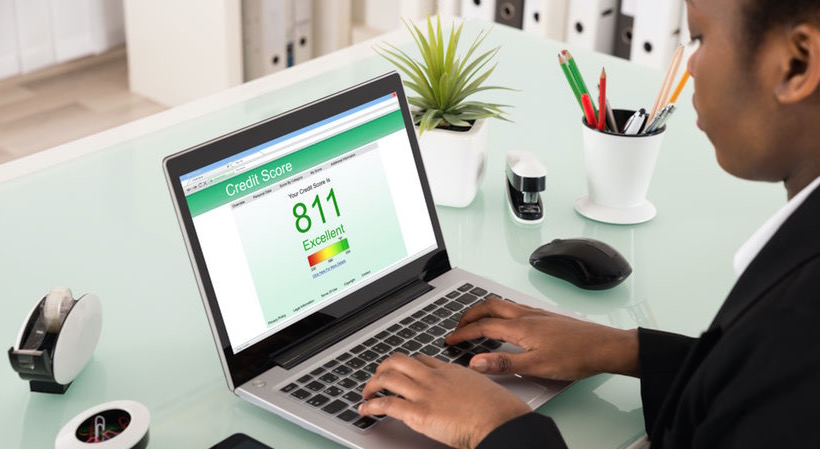Establishing a strong business credit profile is an important factor in how a business’ creditworthiness is evaluated when applying for a small business loan. Granted, different lenders have different thresholds for creditworthiness, but the business owner with a good credit profile will have more options available than a business owner with a weak profile.
StartupNation exclusive discounts and savings on Dell products and accessories: Learn more here
With that in mind, here are four things you need to know about establishing business credit:
Your personal credit score matters
I know your personal credit score doesn’t say anything about how your business meets its financial obligations, but it does tell a potential lender a lot about you and how you meet your obligations. For most small business owners, your personal credit score is always going to be part of any creditworthiness evaluation.
Although they don’t all require the same standard, your personal credit score often acts as a go/no-go metric lenders look at to determine if they will even consider your business loan application.
For example, most banks prefer to work with business owners with a personal score in the 700s, and typically won’t go any lower than 680. The SBA’s minimum threshold is a little lower. They will work with borrowers who have a score of around 650. Many online lenders have a threshold of around 600, but some alternative lenders will even go as low as 500.
Even if a lender will accept a lower personal credit score, there will usually be a cost to the borrower. The lower your score, the more you will likely pay in interest and the less favorable the terms will be. The lowest rates and best terms are typically reserved for borrowers with the best credit scores.
We saw this even with the Paycheck Protection Program (PPP) and the Economic Injury Disaster Loan (EIDL) earlier this year. Many borrowers complained about loan applications that were rejected because they didn’t meet the acceptable threshold. This happened despite the fact that the SBA was making allowances for many small business owners with less-than-perfect credit profiles.
Building a strong personal credit score starts with regular (read monthly) credit monitoring. It’s human nature to positively impact the things we pay the most attention to, so if you want to build a strong personal credit score, you need to pay attention to it.
Your business credit is really a collection of scores
Although there are individual scores associated with business credit, like the D&B PAYDEX Score or Experian’s Intelliscore, your business credit is really the reflection of a collection of scores. Most business credit profiles will include information about how your business does compared to other similar businesses in your industry, of your size, and your annual revenues.
The business credit bureaus also evaluate your business based upon credit risk and often make recommendations about the amount of credit they would offer your business based upon all these factors—with individual scores, or ratings, that reflect how your business stacks up in these categories.
Business credit is one of the most misunderstood things a business owner needs to pay attention to. And like your personal credit, it’s also important to monitor your business credit if you want to make a positive impact in what’s reflected in your profile. Fortunately, building business credit isn’t difficult, but it does take effort and doesn’t just happen.
Related: Why Was My Business Loan Application Denied?
Slow and steady wins the race
There really isn’t a shortcut to building a strong business credit profile, but following good credit practices over time will improve your score in relatively short order. That being said, accessing business credit can be a challenge for idea-stage or very early-stage startups.
Nevertheless, there are some things you can start doing right now that will help you build a good business credit profile:
- Make sure the information the business credit bureaus have about your business is accurate and up-to-date: In addition to the credit history reported to the bureaus by your creditors, there is information culled from the public record included in your profile. For example, your business name, address, the industry you’re in, along with other publicly available information that can be searched at the county or state offices where your business is located. Something as simple as a misclassification of your business could put you in what a lender might consider a riskier industry than what you are actually in, making it more difficult to qualify for a small business loan or other type of business financing. Regularly reviewing your profile to ensure that everything is accurate is important. All of the bureaus have processes for correcting verifiable errors.
- Establish business credit accounts: I’ve often heard the complaint from business owners, “It takes credit to get credit and I can’t get any credit.” While it may be true that it’s difficult for a new business to walk into the bank and get a small business loan, there are other ways to establish a business credit profile. Establishing business trade accounts with your suppliers is often available simply for the asking. If they report your good credit history to the business credit bureaus, these 30-, 60-, or 90-day credit accounts will help you build a robust business credit profile. Business credit cards are another great way to build your profile. Because most credit card providers lean heavily on your personal credit score, it’s often easier for a business owner with a good to excellent personal credit history to qualify for a business credit card. And, if they report to the business credit bureaus (some don’t, so it’s worth asking), they will also help you build your business credit.
- Make timely periodic payments: In the same way making timely payments on your mortgage and auto loan helps you build a good personal credit score, making each and every payment on time will help you establish a strong business credit history. This applies to your business lease (if you have one) and any utility bills that are in the business’ name.
Sign Up: Receive the StartupNation newsletter!
Your business credit profile is public
Unlike your personal credit score, your business profile is publicly available to anyone who may be interested and willing to pay for the privilege of reviewing your business credit history. This could include any potential creditors as well as competitors or other interested parties.
What’s more, it’s possible for two businesses with similar names and similar addresses to sometimes be confused. For example, Joe’s Bar and Diner could easily be confused with Joe’s Restaurant, if they are in the same area with similar-looking addresses. The same level of data validation that goes into updating your personal score isn’t part of the process for business scores—making it even more important to make sure your profile is accurate.
This is one reason why I am a fan of data validation within the small business loan process. It gives them the opportunity to confirm that you are who you say you are and will make the application process easier for you.
A strong credit profile is a valuable asset
Even the smallest startup can benefit from establishing a business credit profile—particularly if you plan on growing your business. The sooner you start to build your business credit history, the better for you and your business.






